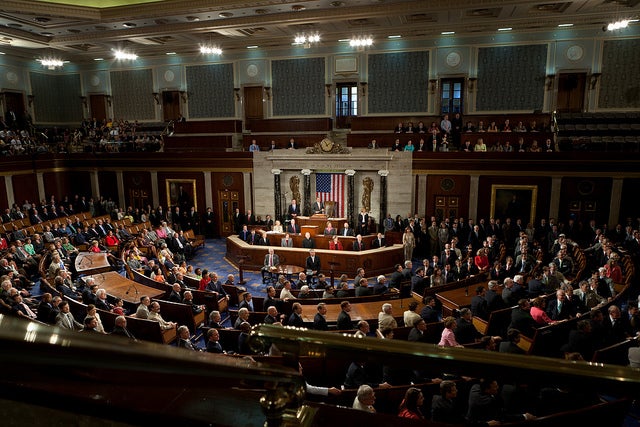House Republicans and various policy groups gathered on Capitol Hill this week to oppose a tax on carbon.
“This is not a carbon tax,” said Grover Norquist, president of Americans for Tax Reform. “Carbon doesn’t pay taxes. People pay taxes. This is a tax on the American people.” A carbon tax would burden all families and businesses by increasing the cost of electricity and anything requiring electricity to be made or accomplished—all without environmental benefit.
Despite Obama’s promises to never tax the middle class, a carbon tax would constitute a massive tax on middle-class Americans. But it’s more than just that. For example, Ford West, president of the Fertilizer Institute, called it a “farmer tax” because it increases the costs of agricultural input, transportation, and fuel to run the farm. Many farmers are already trying to be more environmentally friendly and energy efficient by using alternative agricultural tools and better fertilizing practices while producing more corn than they were 30 years ago.
One could also call the carbon tax a “miner tax.” Congressman Andy Barr (R–KY) pointed out that Kentucky is the third highest coal producer in the country, has 19,000 mining jobs, and has some of the nation’s cheapest industrial utility costs. Obama’s “war on coal” has already cost coal jobs in Kentucky, such as at Joy Global, which announced layoffs this month.
A carbon tax most certainly is a “manufacturing tax.” Because most of the energy we use in the United States comes from carbon-emitting conventional fuels, energy-intensive industries would be particularly hit hard by a carbon tax. A tax on carbon would affect the cost of manufactured goods, food, and utilities. This would certainly affect the cost of doing business and force companies to have to consider cutting jobs or moving to other countries where the cost of doing business is significantly less.
When it comes down to it, a carbon tax is a tax on us all.
Hannah Fjeldsted is currently a member of the Young Leaders Program at The Heritage Foundation. For more information on interning at Heritage, please click here.
